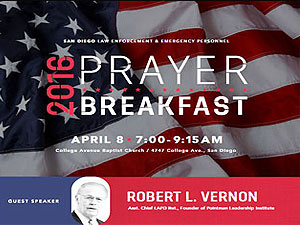CLEF Newsletter - April 2016
“In repentance and rest you shall be saved, in quietness and trust is your strength” (Isaiah 30:15).

A common misunderstanding and interpretation of the term “repentance” is that it refers to a certain contriteness of heart and sorrow over past misdeeds coupled with a desire to make restitution. In most ways this is the common outcome, but the reflective insight of contriteness is really more a process of reconsideration than restoration. Repentance is at heart a reassessment, and a change from one way of seeing and thinking to quite another, even opposite way, of pursuing life. A more Biblical definition would be “a change of mind that results in a change of action.”
Isaiah was a prophet to both the northern and southern kingdoms of Israel, the northern in captivity by Assyria at the time, and the southern headed in that direction with the enculturated idolatry and associated evil it generated. Isaiah was there to warn the south that they too would be overrun by their enemies if they did not turn from their wicked rebellion against the Lord their God. In disregard of His laws for their health, wealth and well-being and His commands to worship Him Who was their deliverer and provider, they instead embraced worldly elements of oppression and selfish personal gain. Their alliances were with the world, not Him, and their security was in the procurement of secular associations and identification with the nations around them instead of maintaining the distinctiveness of His calling for them as a people after His own Name. As a result, they were becoming absorbed by the immoral nations around them and looking more and more like them rather than a nation and people identified with Yahweh, the Lord their God. This had the effect of divorcing them from the blessings and promises of His covenant to make them a truly great people reflective of His goodness. Time and again they spurned Him by finding security in alliances with other countries who intended to exploit them, not willing to listen to the Truth, insisting on delusions to justify their irrational thinking and behavior. They told their prophets to “speak to us pleasant, smooth words, and prophesy illusions” (v.10). Moreover, to “get out of the way and quit talking about ‘the Holy One of Israel.’” They forbid the admonishment of a vision for an upright people and were intolerant of any calling to the integrity of righteousness, relying instead on repression, duplicity and deceitful manipulation. Suppressing the truth in unrighteous tyranny, God warned them they were facing catastrophic loss, an instantaneous collapse like the smashing of a potter’s jar.
Though a century later, that collapse did come, and the southern kingdom was destroyed, thousands slaughtered and survivors carried away into slavery and captivity in Babylon for over 70 years, their cities laid ruin and their wealth plundered. But during that century God continued to entreat them to return to him “in repentance and rest” with the ways and means God had called them to reflect His lovingkindness, justice and righteousness as a nation and people called by His Name. In a confident, quiet, unqualified trust in the veracity of His statutes and ordinances, designed to image and exhibit the signature stamp of His uprightness and rectitude, the moral fiber of their social order, they were to demonstrate what it meant to be a trustworthy people of true honor and fidelity. In times past that stature of stateliness made them great and unrivaled as they confirmed the light and the glory of God’s excellence, and their prosperity, prudence and judgement as a people was unparalleled and sought after. So for any people who are in line with the truth of God’s Word.
But history is a teacher often scorned. These days, true leadership is in anxious demand. Even more is the need for a culture and society that will receive true leadership when it avails them. Are we even capable of recognizing and receiving true, moral and astute leadership when it is presented to us? Do we yet possess ears to hear and eyes to see it; do we still have moral courage to follow it, much more generate it? These are questions that have us hanging in the balance, as a nation and world, even as a civilization. Where will we be a century from now? What devastating loss and declension will we have suffered, or what reclamation, in repentance and rest, will we have restored? It will come down to the leadership of God’s lovingkindness, justice and righteousness that heals, strengthens and reestablishes hope and trust.
After 38 years with LAPD, Asst. Chief Robert Vernon retired following 10 years in command of over ten thousand employees. He then founded Pointman Leadership Institute, an international training and leadership organization which has taught character principles and ethical leadership to top military, police and government officials across the globe, showing how behavior patterns are connected to one’s character and how focusing on underlying character traits are essential to powerful leadership. Join us and hear him speak April 8th at the Annual L.E. Prayer Breakfast.
“Thus says the Lord to you, ‘Do not fear or be dismayed by (this threat), for the battle is not yours but God’s’ ” (I Chronicles 20:15)

